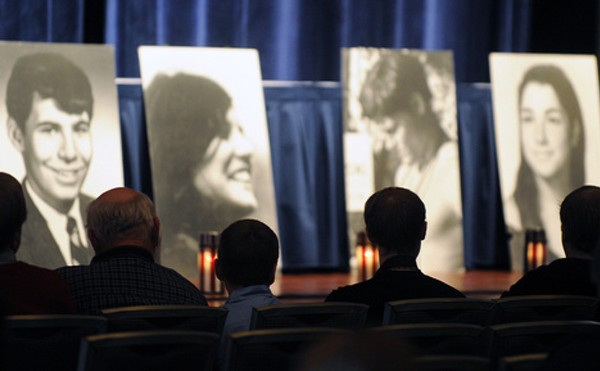As I’ve stated before, my modest annual allotment of sports enthusiasm is given over entirely and without hesitation to University of Louisville Men’s Cardinal Basketball, for whom I gleefully lose sleep between the months of November and March.
But several things happened this week in the wide wide world of sports that caught my attention and warrant review.
Former University of Miami Athletics booster Nevin Shapiro was recently sentenced to 20 years in prison for defrauding investors out of something like $930 million in a dumb-ass ponzi scheme. Quickly discovering that lifting weights with the Crips or playing peek-a-boo with the Aryans wasn’t going to be his bag in the big house, Shapiro opted to spend his time sitting down with Yahoo Sports for about 100 hours of interviews. This week, Yahoo published his accounts, in which he outed the entire Hurricane Athletics program, and the culture of NCAA fraud in general, with a laundry list of infractions he funded or otherwise took part in between 2002 and 2010, often, he alleges, with the complicity of the program.
The allegations include mostly predictable stuff, like providing players with Escalades, hookers and cash, but are not without a few real charmers, like paying for abortions. What is unprecedented in collegiate athletics is the density and concentration within one program. Nothing’s ever been handed over with such tidy ribbons and bows, and the shit storm is going straight up the chain with tough questions being asked of one Paul Dee, who served and sometimes chaired the NCAA Committee on Infractions while also (drum roll please) serving as the athletic director of the University of Miami! But while the breadth and depth of the allegations are truly staggering, anyone with a remote control and pulse understands that it’s all part and parcel of college athletics.
What’s been bugging me this week is not the hypocrisy and rank criminality of Brooks Brothers boosters and committee member goon squads who serve as nothing less than pimps in a multi-billion dollar racket. It’s shameful, and I get it. What got my attention were two stories about Little League baseball, which I couldn’t avoid seeing through the lens of the Miami scandal.
On Monday, the North Oldham Little League team of La Grange, Ky., was eliminated from the Little League World Series, losing to Georgia 8-5 in extra innings. Before the boys left for Pennsylvania, The Courier-Journal printed a photo of the team celebrating the win that ensured them a spot in the tournament. The photo was just what you’d expect: boys in uniforms and ball caps, smiling to the breaking point and totally unconscious of their disposition, unique to the years immediately preceding puberty, in which real joy still has the power to eclipse the need to look cool.
The fate of the Rev. John Foundation Little League team from Kampala, Uganda, who, just like the boys from La Grange, had won their division and were headed to the World Series, seemed the photographic inverse. Because some players couldn’t produce reliable birth certificates, the entire team, including all the coaches and chaperones, were denied visas by the U.S. State Department. The New York Times printed a photo of the boys huddled together in a darkened video hall watching the Saudi Arabian team take their spot against Canada. The dejection on their faces was very simply heartbreaking.
Apparently, several of the boys’ parents — hoping their sons’ involvement in America’s favorite pastime might elevate them out of poverty — had fudged their birth records to make them appear younger than they are, as Little League is for 11-13-year-olds. A rule is a rule, but it was a no-win situation.
The collision of these disparate stories got me thinking about why kids play sports. Some theories of early childhood development suggest the real utility of playing games is in the way competition and community encodes kids with the values of their specific cultural and social groups. This begs some questions. For the boys from North Oldham who can’t contain their joy when they win, and commiserate together when they lose, which of our cultural values are they going to learn in a few years when they go off to play ball at the college level? What have the boys from Uganda learned about their cultural values as weighed against those of America, who brought them the game and then asked them not to play?





